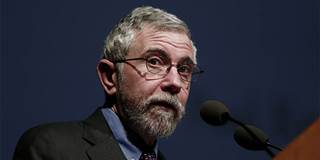Economists vs. Economics
Criticism of economics – for hubris, neglect of social goals beyond incomes, excessive attention to formal techniques, or failure to predict major developments such as financial crises – has usually come from outsiders, or from a heterodox fringe. But lately it seems that even the field’s leaders are unhappy.
CAMBRIDGE – Ever since the late nineteenth century, when economics, increasingly embracing mathematics and statistics, developed scientific pretensions, its practitioners have been accused of a variety of sins. The charges – including hubris, neglect of social goals beyond incomes, excessive attention to formal techniques, and failure to predict major economic developments such as financial crises – have usually come from outsiders, or from a heterodox fringe. But lately it seems that even the field’s leaders are unhappy.



CAMBRIDGE – Ever since the late nineteenth century, when economics, increasingly embracing mathematics and statistics, developed scientific pretensions, its practitioners have been accused of a variety of sins. The charges – including hubris, neglect of social goals beyond incomes, excessive attention to formal techniques, and failure to predict major economic developments such as financial crises – have usually come from outsiders, or from a heterodox fringe. But lately it seems that even the field’s leaders are unhappy.